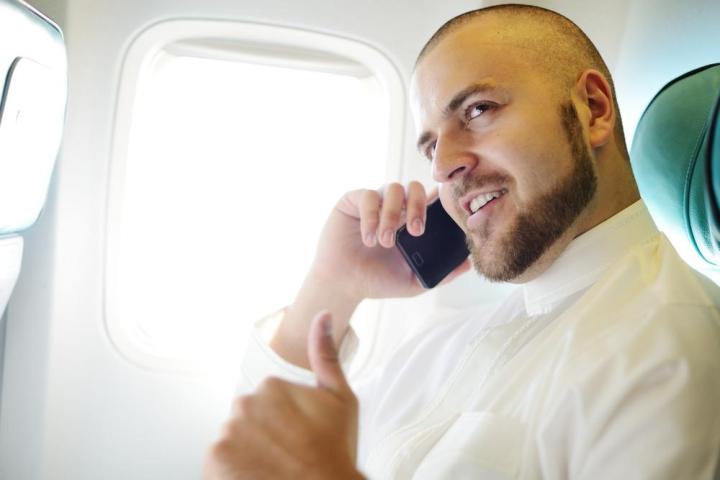
The skies have already become a whole lot more gadget-friendly in the past month, with the Federal Aviation Administration (FAA) recently giving airlines the go-ahead to let passengers use their portable electronics during takeoff and landing. But that, it seems, is just the beginning. The Wall Street Journal reports that the Federal Communications Commission (FCC) may soon consider lifting the ban on inflight cell phone use.
If you think this is a terrible idea, you’re not alone. A survey conducted by the FAA found that 51 percent of respondents reacted negatively to the thought of inflight wireless service, while 47 percent welcomed the idea. Furthermore, airlines that provide Wi-Fi have had the option of allowing inflight calls through Voice over IP (VoIP) services like Skype – but “virtually all” U.S. airlines shot down the idea, WSJ reports, because they found that “their customers don’t want inflight calls.”
As with VoIP calls, airlines will be able to choose whether they want to allow inflight cell phone calls or not. And as of right now, many airlines are “hesitant” about introducing the possibility of rude callers, who chat away loudly on their phones for entire flights, reports WSJ.
Of course, there are plenty of reasons why some passengers would cheer for inflight cell service, from family emergencies to time-sensitive business deals – all of which, we should add, can feasibly be dealt with over email, or Gogo’s forthcoming text messaging service.
The FCC’s ban on inflight cell phone calls has been in place since 1991 due to concerns that wireless signals would interfere with crucial plane communications. The FAA recently found, however, that there is no safety issues caused by cell phone calls on planes.
If the FCC does decide to lift its cell phone ban, there will be some stipulations. First, unlike other gadget usage, cell phone calls won’t be allowed below altitudes of 10,000 feet. Also, the service will likely cost a bundle; according to WSJ, cell phone companies will likely create a whole new set of roaming fees, and partner with inflight Wi-Fi companies like Gogo to offer the service. The expense of inflight cell calls, therefore, may prevent the long, loud conversations half of Americans seem to fear.
For better or worse, the FCC is expected to begin discussing the abolition of its inflight cell phone call ban at a meeting in December.
So what do you think: Would you welcome inflight cell phone service?
[Image via Zurijeta/Shutterstock]

